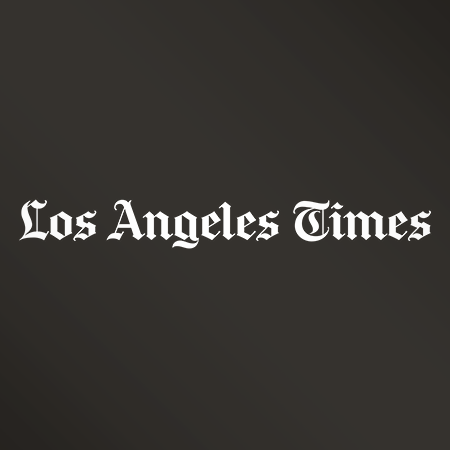June 18, 2018
As the on-again, off-again summit process between the leaders of the United States and North Korea culminated on June 12, media outlets large and small scrambled to decode the partisan spin and figure out what it all meant. From CNN and the BBC to NPR and the New York Times, on television, radio, podcasts, and print, truth-seekers turned to the experts at the James Martin Center for Nonproliferation Studies for the summit’s historical and technical context: fact-based analysis into the implications and prospects for peace on the peninsula.
Below is a select list of articles and broadcasts featuring CNS experts. Our full list of media hits is updated biweekly. For real-time updates from CNS experts, be sure to follow us on Twitter or Facebook, and subscribe to “News & Views,” our monthly e-newsletter roundup of CNS highlights.
| June 1, 2018 |  |
Melissa Hanham talks with “All Things Considered” host Audie Cornish on “What Denuclearization of North Korea Would Look Like“ |
 |
Joshua Pollack points out that Trump seems to equate the meeting with the outcome, irrespective of process. | |
| June 2, 2018 |  |
Jeffrey Lewis discusses the “shocking turn of events” and its “upside”: that Trump and his aides “no longer have unrealistic expectations.” |
| June 5, 2018 |  |
Melissa Hanham joins BBC World Service to discuss the rumored replacement of three high-ranking military figures in North Korea as the summit approaches. |
| June 11, 2018 |  |
Andrea Berger discusses “the fairly wide spectrum of potential outcomes” to the summit. |
 |
Fareed Zakaria turns to Jeffrey Lewis to get some historical context to North Korea’s nuclear program on his CNN special, “The Two Faces of Kim Jong Un“ | |
| June 11, 2018 |  |
Melissa Hanham joins a live BBC broadcast as the countdown to the summit commences. |
 |
The Post‘s Elizabeth Saunders refers readers to Joshua Pollack‘s “grim” rundown of broken US–DPRK promises. | |
 |
Jeffrey Lewis explains that Kim Jong Un makes it clear they are not going to give up their nukes. | |
 |
Catherine Dill opines that “Trump has already lost: Kim gets all the pageantry… without having to make serious commitments.” | |
 |
“Asking the North Koreans to give up their nukes is like asking the Golden State Warriors to give up their NBA championships,” Jeffrey Lewis explains. | |
 |
The Australian Broadcasting Company asks Melissa Hanham on live national TV if they should get their hopes up that North Korea will truly disarm. | |
 |
To understand just what North Korea has in its arsenal and what it would take to disarm, NBC News talked to Jeffrey Lewis. | |
 |
In pursuing a persuasive approach to proliferation, Trump may be onto something, Jeffrey Lewis tells The Atlantic. | |
 |
Joshua Pollack sets out his “really low” expectations of the summit. | |
| June 12, 2018 |  |
Joshua Pollack explains the summit’s winners and losers in his NY Daily News op/ed |
 |
The declaration offers nothing new, Melissa Hanham explains. | |
 |
A “gobsmacked” Jeffrey Lewis weighs in on Trump’s faux movie trailer to the NY Times. | |
 |
Miles Pomper points out that the summit will make it more difficult to enforce Chinese and Russian compliance with sanctions. | |
 |
Christiane Amanpour turns to Jeffrey Lewis to explain the crucial difference between the way US and DPRK interpret the word “denuclearization.” | |
 |
Epochal? Not quite. Still a welcome return to diplomacy, Joshua Pollack writes in this LA Times op/ed. | |
 |
Grace Liu cautions against claiming victory for disarmament just yet. | |
 |
The leaders’ statement is “a joke,” but Jeffrey Lewis isn’t laughing. | |
 |
Audie Cornish turns to Joshua Pollack for the meaning of the statement and its historical background. | |
 |
Joshua Pollack‘s excellent brief-yet-comprehensive rundown of the history of DPRK denuclearization process gets a shout out in Defense One. | |
 |
Catherine Dill explains that disarmament by declaration is a fallacy, and Jeffrey Lewis points out that the declaration was more about meeting the leaders’ domestic needs than those of their bilateral relationship. | |
 |
Jeffrey Lewis notes that Kim Jong Un achieves what Il Jong and Sung Il before him could not: to be treated by the United States with respect. | |
 |
Catherine Dill parses through DPRK state media to ascertain the North Koreans’ takeaway. | |
 |
In a post-summit world, managing the US–South Korean relationship will be no easy feat, Catherine Dill explains. | |
 |
Melissa Hanham explains the lengthy time requirements of disarmament verification on CBS Miami. | |
 |
Andrea Berger discusses the impact of the summit on sanctions. | |
| June 13, 2018 |  |
It was an exhausting week for CNS experts like Melissa Hanham and Jeffrey Lewis. But at least the world’s got a new cocktail out of it? |
 |
Offering aid or investment to North Korea is a disincentive, as Joshua Pollack learned from reading North Korean op/eds. | |
| June 14, 2018 |  |
With virtually nothing of substance signed, there is no North Korea deal. In this full-length op/ed published by NPR, Jeffrey Lewis explains the cardinal rule of deal making: “If you can’t write it down, you don’t have a deal.” |
 |
The Trump administration isn’t the only one making campy agitprop. Jeffrey Lewis analyzes the DPRK’s video. | |
 |
Jeffrey Lewis worries that Trump “suddenly wakes up one day and realizes what’s really going on, he could just explode, and then we’re in real trouble.” |
*Experts speak to the media in their own capacity and do not reflect the views of CNS.
